Today, it’s a common understanding in dog breeding that mating close relatives must be avoided, and the inbreeding coefficient should be kept as low as possible.
However, if inbreeding happens by accident, here’s what you can expect.
Accidental inbred puppies bear a high risk of being born with severe health issues. Breeding close relatives increases the chance of two copies of the same faulty gene being passed to the puppies, which can lead to physical and personality defects.
In this article, I will explain the possible consequences of accidental inbreeding, cover the genetic aspect that determines the potential risks, and discuss what to do if unintentional inbreeding happens, as well as how it can be avoided.
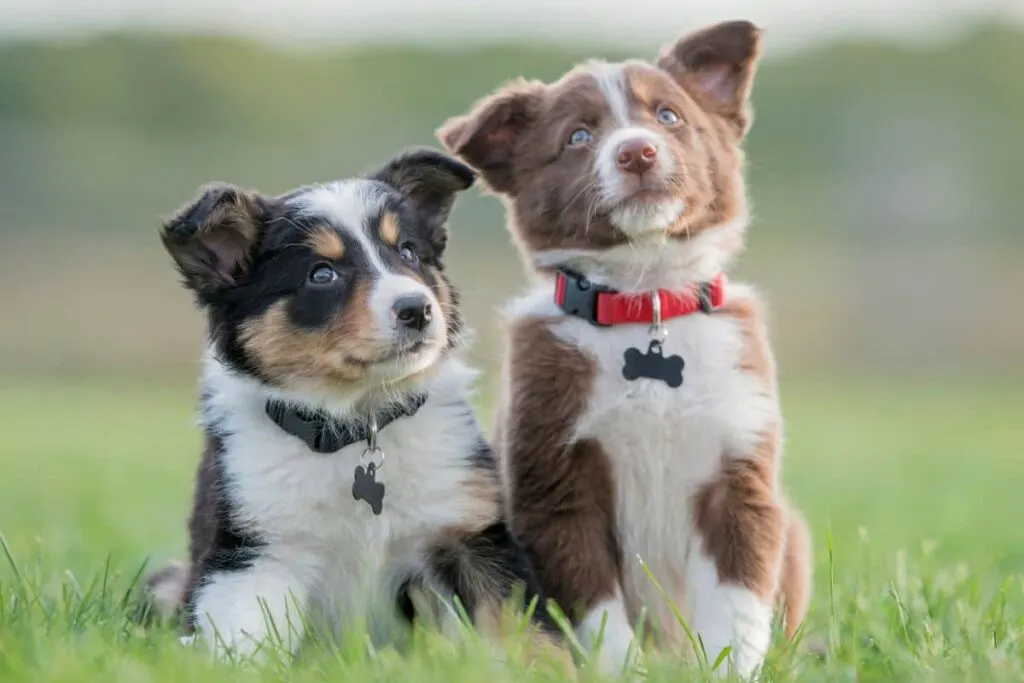
Click Here to Jump to a Section
What Happens if Puppies Are Accidentally Inbred?
Unfortunately, it is hard to predict what will happen to inbred puppies.
There is a chance they’ll be born perfectly healthy; however, the risks of inherited illnesses, physical defects, or death at birth are very high with inbreeding.
The risks and chances of avoiding them are determined by genetics.
To better understand what goes wrong when puppies are inbred and why mating close relatives is strongly discouraged, it’s essential to discuss the genetic mechanisms that come into play.
The Genetics of Inbreeding
The possible consequences of inbreeding all come down to genetics.
Put simply, each individual has two genes responsible for the same trait: for instance, eye color.
Each of those two genes was passed down to them by one of their parents.
Genes can be:
- Dominant: Strong, suppressing other genes, and most likely to show
- Recessive: Weak and only showing in the absence of dominant genes
- Additive: Neither dominant nor recessive, showing unique results depending on what it’s combined with
Recessive genes can sit quietly in the breed and be passed down over generations without showing.
As they are hidden in the genome, their effects are a mystery to us until two recessive genes happen to meet.
Sometimes, this results in an unexpected yet harmless physical trait, like blue eyes on a baby born from two brown-eyed parents.
Yet, at other times, recessive genes end up carrying harmful mutations, personality or physical defects, severe incurable illnesses, and similar.
Recessive genes are very unpredictable; however, from the long history of studying inbreeding, there’s one sure consequence we know about.
Breeding close relatives strongly limits the pool of genes, as their genomes will be highly similar to each other.
This also means that if there is a harmful recessive gene hiding in their genomes, the likelihood of two copies of that gene meeting in the litter increases.
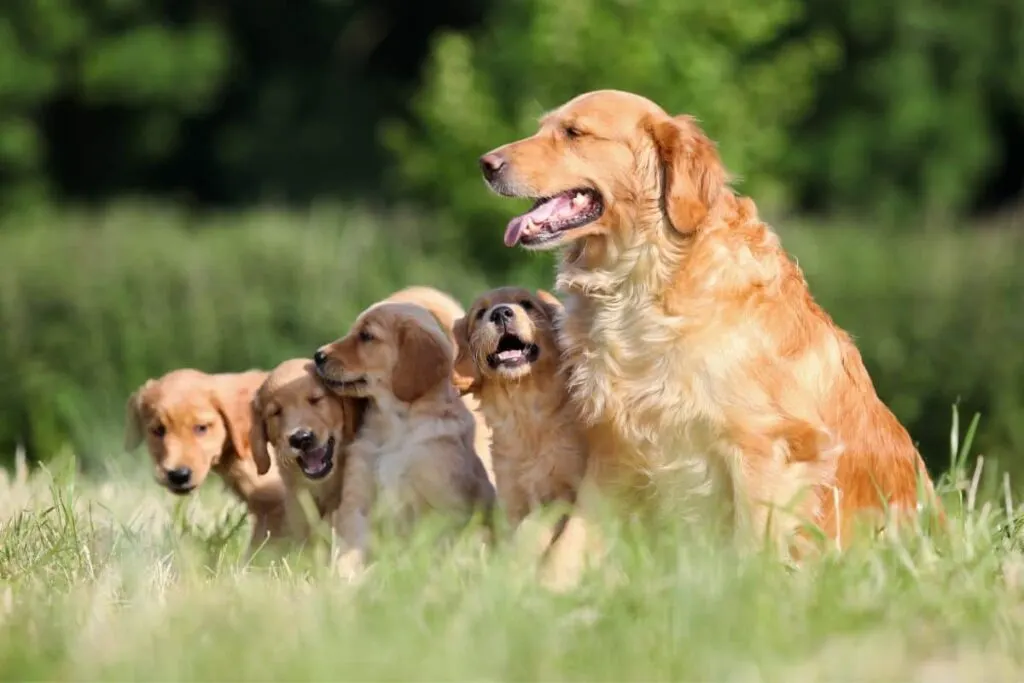
The gene can not show for generations, yet the chances of it resurfacing grow with each inbred offspring, and the breed’s genetic health gets progressively worse.
We know that today the average inbreeding coefficient in dogs is around 25%, which is very high: that’s the extent of similarity one expects to find in human siblings.
This is due to the long history of inbreeding that once helped to fixate the traits breeders most liked in their dogs and produce the unique breeds we have today.
However, such a high coefficient is not good for our pets’ long-term, and the adverse effects on their health are already showing.
This means that breeding siblings or parents with offspring bears even more risks, especially if their breed has a particularly long history of inbreeding.
To sum up, allowing close relatives to mate is considered unethical because the offspring has a high chance of being born with severe health issues due to the similarity of genomes and the potential showing of the same faulty recessive genes.
Potential Negative Consequences of Inbreeding
What adverse effects can you expect from inbreeding?
Let’s discuss the potential risks in more detail.
However, keep in mind that those are risks and whether any of these issues will be the case with your puppies is a matter of chance.
Still, the chances of these problems occurring are pretty high when two close relatives are bred.
Predisposition to Inherited Diseases
Due to inbreeding, many breeds have developed a strong predisposition to specific health conditions.
To name a few examples:
- Golden Retrievers have a high risk of developing cancer.
- Cavalier King Charles Spaniels are predisposed to Syringomyelia, which causes nervous system damage.
- German Shepherds are prone to hip dysplasia.
These unfortunate statistics are not accidental: while inbreeding dogs to secure the desired traits, we also encouraged the faulty genes that cause specific health issues and fixed them within each breed.
Puppies that come from close relatives are prone to receiving such adverse recessive genes and suffer from serious health conditions.
If your puppies are inbred from two purebred dogs, the risks increase even more.
Personality and Physical Defects
Apart from diseases, inbred puppies have a high chance of being born with physical or personality defects.
Mutations are natural and occur continuously; however, they are kept under control when genomes are mixed through breeding, allowing for more diversity and better adaptation.
On the other hand, when puppies are inbred, the risk of adverse mutations developing becomes higher.
Common physical defects that could occur include deafness, blindness, obesity, misaligned jaw, and others, some of them specific to certain breeds.
However, not everyone knows that inbreeding can negatively impact a god’s personality, temperament, intellect, and mental health.
Inbred dogs are more likely to be aggressive and uncontrolled, sometimes due to adversely affected intellectual abilities.
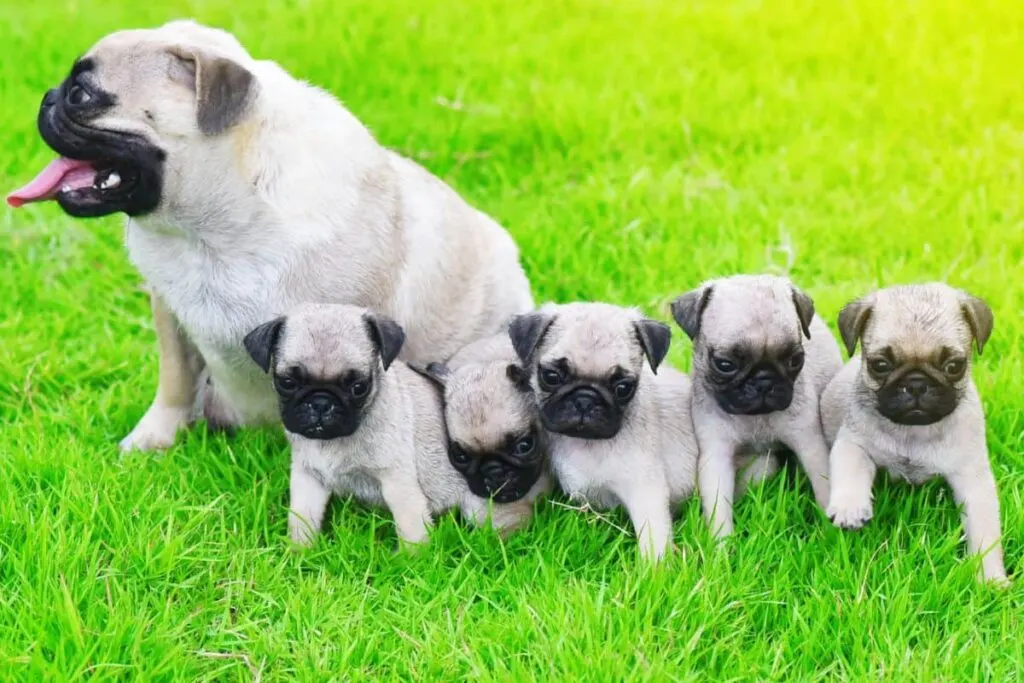
Mental health issues often include depression and anxiety.
Overall, personality defects have the potential to make the dog dangerous to others or cause it to struggle with severe mental health conditions.
Low Fertility
Another common issue with inbred offspring is reduced fertility.
This problem can occur both in males and females, with the latter being unable to get pregnant or delivering smaller litters and the former showing poor sperm quality.
All in all, inbred dogs are harder to breed, and it’s even more difficult to ensure the successful birth of fertile offspring.
Fixation of Negative Traits
If the inbred dogs end up being fertile, their pups will likely carry faulty genetic material that will be passed on further and affect the genetic health of the breed.
Predisposition to certain health conditions, adverse mutations, dangerous temper traits, and other qualities that develop due to inbreeding end up locked in the genome and passed to other puppies.
Over time, this causes the fixation of those negative traits.
That’s the mechanism we’ve already discussed in regard to inherited illnesses typical of some breeds.
Unhealthy inbred dogs will give birth to other pups that will also inherit their traits, and inbreeding over the course of generations will lead to even more negative consequences.
Risks of Stillborn Puppies and Shorter Lifespan
Finally, unpredictable mutations and health issues can significantly reduce the dogs’ lifespan.
Inbreeding has been reported to cause immunity problems, leading to pups being prone to diseases and making it harder for them to recover.
Autoimmune illnesses are also likely to occur in an inbred litter.
Add in the predisposition to severe health conditions and mutations such as hip dysplasia that often lead to fatal outcomes.
As a result, the dogs are likely to have a shorter lifespan.
There is also a danger of puppies being stillborn, meaning they are born dead.
This is heartbreaking as it is; however, stillborn pups also threaten the life of their mother, as well as the rest of the litter.
In some instances, complications while delivering a stillborn puppy are so severe that it’s extremely difficult to save the mother and siblings.
Potential Benefits of Inbreeding
Still, as I’ve mentioned before, inbreeding used to be very common and is still acceptable for some breeders despite the troubling facts and research results we’ve discussed.
So, are there benefits to inbreeding?
Fixation of Positive Traits
The main reason inbreeding used to be so widely utilized is it actually gave exceptional results. At first.
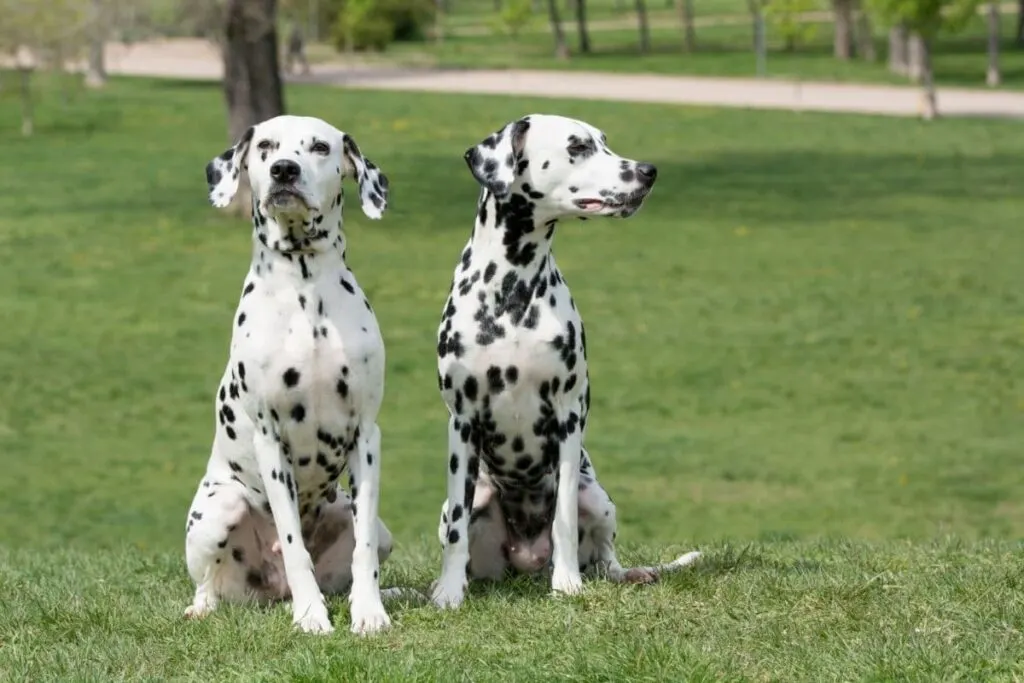
When a particular trait you want to keep in the breed occurs due to a successful mutation, the easiest way to keep it is to breed its owner with its offspring.
This strongly limits the gene pool, immensely increasing the probability of the pups inheriting the desired trait.
Sticking to this breeding strategy will produce the breed designed to our preferences rather quickly, fixing certain physical or personality traits in the genome.
This is how we ended up with so many unique breeds with distinctive physical features: tiny, huge, big heads, short paws, long hair, short hair, and so on.
Temperament can also be influenced through such breeding, allowing for the growth of loyal and obedient dogs that will make excellent pets for us humans.
And if this simple logic sounds too good to be true, that’s because it is.
Why It’s Not Worth It
While we’re still pretty fixed on pure breeds despite the disturbing results of studies on CoIs, we are making significant progress in pushing inbreeding into the category of unacceptable.
Though the short-term effects of it may indeed seem like a success, the long-term consequences for the dogs’ health make this breeding strategy simply unethical.
As we cultivate certain traits we like, we also fix a whole set of recessive genes completely unknown to us.
Our knowledge of genetics is still underdeveloped and doesn’t protect our pets from inheriting faulty genetic material that brings them suffering, shortens their lifespan, and stimulates the development of health conditions they could’ve avoided if not for human intervention.
We’re still unable to predict what problems can be caused by genes hidden behind the physical features or personality traits we wish to keep.
I have already mentioned several breeds that were created by us with inherent issues they keep passing on and on, with no real solution available.
So, inbreeding should be avoided as much as possible.
Though the CoI is rather high for modern dogs as it is, we should work on keeping it as low as we can, prioritizing the health of our dogs over pure-breed traits we’ve been focusing on for so long.
Accidental Inbred Puppies: What To Do?
Due to various reasons, accidental inbreeding can happen.
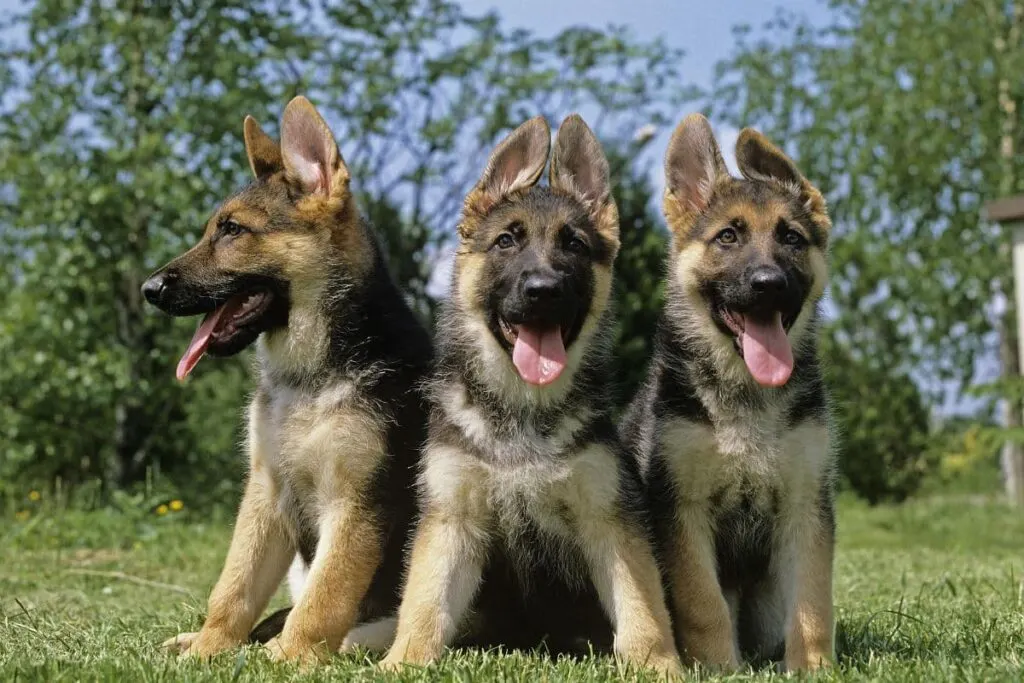
If that’s something you’re dealing with at the moment, know that such an accident can be risky both for the mother and future puppies.
Here’s what you can do in this situation:
- Prevent pregnancy. If it’s been less than 45 days from mating, you can still avoid accidental inbred puppies with a Mismate shot. It contains hormones that won’t let the egg fully develop.
- Ensure proper nutrition for the mother. If it’s too late to prevent pregnancy, provide the best conditions for the dog and take care of its health.
- Talk to the vet. Explain the situation and get recommendations on how to ensure the mother delivers pups safely.
- Be prepared. You will be responsible for the well-being of newborn pups, so make sure you have the means to find homes for them or keep them with you, bearing in mind that health complications are possible.
How To Avoid Accidental Inbreeding
While accidents happen, it’s your responsibility to prevent inbreeding from happening, as this puts in danger more than one life.
Here’s what you can do to ensure inbreeding doesn’t happen:
- Get some or all of the dogs fixed. For instance, if a mother and a son live under your roof, getting the male fixed would be your best option.
- Use contraception. Male contraceptives bear fewer health risks and are easily implemented; however, there are female ones as well. Use them to avoid pregnancy due to accidental mating.
- Keep the dogs away when the female is in heat. If you choose not to get any of the dogs fixed, make sure you have all means to keep them away from each other to avoid mating (in separate rooms, crates, or homes).
On a related note, check out my article about whether you breed dogs without the right paperwork. As you can imagine, having the right papers make it easier to avoid situations of inbreeding. [Can You Breed a Dog Without Having Papers?]
Final Thoughts
Inbreeding bears high risks of health issues, personality disorders, physical defects, and stillborn pups.
Overall, it is unethical to put the mother and future pups in such danger, so you, as the owner, should treat the matter responsibly and prevent inbreeding from occurring.
If it happens by accident, the best option is to prevent pregnancy, which can be done within 45 days.
